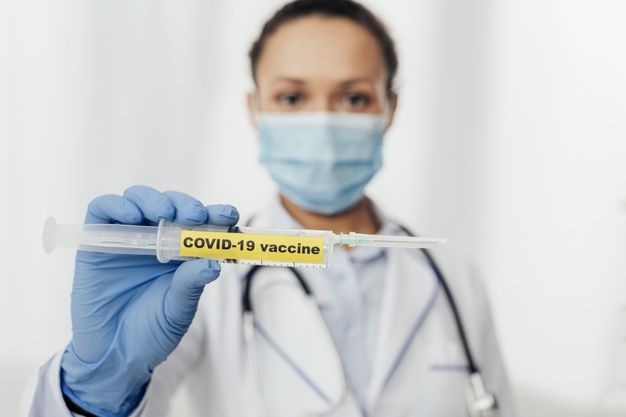
Should Public Health Transition From Booster COVID Shots to an Annual COVID Shot?
As the COVID-19 pandemic has approached the second anniversary of the massive shutdown of the United States and other countries around the world, many are wondering if the SARS-CoV-2 virus will still be an omnipresent component of daily life in another two years.
One of the ways in which COVID-19 can be reliably suppressed and managed could be for public health officials and medical providers to successfully transition from a state of periodic boosters to a more routine annual vaccination schedule, similar to the annual flu vaccine.
Here’s what you need to know about the future of boosters and the potential of annual COVID-19 vaccines.
Will another booster shot, or an annual shot, be necessary for the fight against COVID-19?
Because the COVID-19 pandemic has taken many unforeseen twists and turns, the answer to the above question is likely yes. Vaccines have reduced the disease burden and mortality of COVID-19 tremendously. However, even if you have completed a full vaccine series and received a booster shot to boot, you are still vulnerable to contracting COVID-19 variants. This can lead to you experiencing a breakthrough infection, according to the US Centers for Disease Control and Prevention (CDC). There are two primary reasons for this: viral mutation and waning vaccine immunity.
Vaccines and boosters greatly protect against hospitalization and death from COVID-19 — however, as the SARS-CoV-2 virus continues to mutate, it may evade vaccine immunity more and more, as has been seen with the recent Omicron variant and sub-variant. Additionally, research shows that vaccine-induced immunity against the SARS-CoV-2 virus declines after a number of months, independent of the presence of circulating variants.
Both of these factors may make a future COVID booster or annual COVID shot necessary. The CDC has already recommended that patients who are immunocompromised receive a second booster or, effectively, a fourth COVID shot.
What is a potential timeline for transitioning from boosters to annual shots?
As companies such as Pfizer and BioNTech apply for FDA consideration of a second booster shot — after some countries such as Israel have already recommended a second booster shot for certain members of their population — you may begin to wonder how many boosters is enough before the general public is simply advised to get a COVID-19 vaccine annually. This transition may not be too far away, as the CEO of Pfizer Inc has reportedly indicated that annual COVID-19 vaccines may be preferable to frequent booster shots every four to five months.
While public health officials and others in the medical sphere are hopeful that an annual vaccine may be a way to keep an endemic SARS-CoV-2 virus at bay, more data is necessary before a potential timeline for that transition can be determined. As the virus retreats, annual vaccines may even become less necessary. Some health officials, such as U.S. Chief Medical Adviser Dr. Anthony Fauci, have alluded to a less frequent vaccine update for immunocompetent people, such as every four to five years.
Combining vaccines against annual respiratory viruses
Public health officials pour resources into campaigns each year to motivate the general public to get a flu vaccine; however, in recent years they have not reached their desired target of vaccinating 70 percent of the population. Adding an annual COVID vaccine into the mix of recommendations may further reduce the success of such vaccination campaigns.
However, if a flu vaccine and COVID vaccine could be combined, it may increase the likelihood that the general public gets vaccinated every year. People may prefer one yearly jab to two or three — in fact, vaccine manufacturers are already studying the feasibility of a combined COVID-19 and flu shot.
What’s on the horizon for COVID-19 vaccines?
While waning vaccine-induced immunity and emerging variants may necessitate boosters or annual vaccines in the current public health setting — particularly for people who are most vulnerable to severe illness from COVID-19 — variant-proof vaccines are also in the pipeline. This new generation of vaccines, including a pan-coronavirus vaccine that would protect against multiple strains in the human coronavirus family, may change the public health calculus yet again.
How to learn more about the future of COVID-19 boosters and annual vaccines
As the SARS-CoV-2 virus transitions from a pandemic state to an endemic state, public health educators will be tasked with providing information about upcoming COVID-19 boosters or, potentially, annual COVID-19 vaccines. To stay up to date about the latest on vaccine research, make sure to check out the CDC’s newsroom.
Research and materials for this article were compiled, written, and distributed on behalf of the National Public Health Information Coalition. The views and opinions expressed in this blog are those of the various authors and do not necessarily reflect the official policy or position of the National Public Health Information Coalition or its members.
References:
[1] Possibility of COVID-19 Illness after Vaccination. https://www.cdc.gov/coronavirus/2019-ncov/vaccines/effectiveness/why-measure-effectiveness/breakthrough-cases.html
[2] Booster longevity: Data reveals how long a third shot protects. https://www.npr.org/sections/goatsandsoda/2022/01/19/1071809356/covid-booster-omicron-efficacy
[3] Immunocompromised Patients Should Receive Fourth COVID Shot: CDC. https://www.medscape.com/viewarticle/967413
[4] Pfizer and BioNTech Submit for U.S. Emergency Use Authorization of an Additional Booster Dose of their COVID-19 Vaccine for Older Adults. https://www.pfizer.com/news/press-release/press-release-detail/pfizer-and-biontech-submit-us-emergency-use-authorization
[5] Pfizer CEO sees annual COVID vaccine rather than frequent boosters. https://www.reuters.com/business/healthcare-pharmaceuticals/pfizer-ceo-sees-annual-covid-vaccine-rather-than-frequent-boosters-2022-01-22/
[6] Scientists said we’d take annual COVID jabs like flu shots. Now Fauci says it might be only every 5 years. https://fortune.com/2022/02/09/scientists-said-wed-take-annual-covid-jabs-like-flu-shots-now-fauci-says-it-might-be-only-every-5-years/
[7] Increase the proportion of people who get the flu vaccine every year — IID‑09. https://health.gov/healthypeople/objectives-and-data/browse-objectives/vaccination/increase-proportion-people-who-get-flu-vaccine-every-year-iid-09
[8] Moderna eyes combined Covid-19, flu booster by 2023. https://www.pharmaceutical-technology.com/news/moderna-eyes-covid-19-flu-booster-2023/
[9] CEPI expands partnership with SK bioscience to develop a ‘variant-proof’ vaccine against SARS-CoV and SARS-CoV-2 variants. https://cepi.net/news_cepi/cepi-expands-partnership-with-sk-bioscience-to-develop-a-variant-proof-vaccine-against-sars-cov-and-sars-cov-2-variants/
[10] Preclinical studies support Army's pan-coronavirus vaccine development strategy. https://www.army.mil/article/252890/preclinicalstudiessupportarmyspancoronavirusvaccinedevelopmentstrategy
[11] New CDC Studies: COVID-19 Boosters Remain Safe, Continue to Offer High Levels of Protection Against Severe Disease Over Time and During Omicron and Delta Waves. https://www.cdc.gov/media/releases/2022/s0211-covid-19-boosters.html

